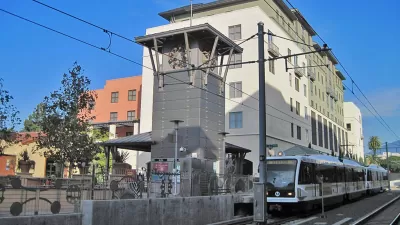Building more fourplexes could do a lot to fix Portland’s missing middle plan, one commentator argues.

Portland’s City Council is scheduled to review a missing middle housing plan. Henry Kraemer argues they should embrace it. The plan would seek to allow multi-unit housing like three and four-plexes in more of the city along with coach houses or ADUs. Kraemer contends that this change could do a lot to support the city’s middle and working class. "Since 1924, the most amenity-rich parts of Portland have been walled off to anybody who cannot afford a single-family detached house. Because detached buildings are the most expensive way to house a family, white supremacists connivingly used single-family-only zoning across the country as an ostensibly colorblind way to exclude people of color from their imagined white utopias," Henry Kraemer argues on HenryKraemer.com.
Land in many parts of Portland has become more expensive, dividing the costs of that land between four households could do a lot to make housing more affordable. "The choice facing the Portland City Council is between the status quo – a steady spread of luxury McMansions across the city – and a city where newly legalized fourplexes make it possible for middle-and-working-class families to pool their resources to afford coveted land," Kraemer writes. Kraemer points to a study that shows fourplexes are the cheapest housing available.
While the plan does a lot to make housing more affordable, it will not bring homes in reach of everyone. "Despite its myriad benefits for middle-class and working-class Portlanders, the policy will also not do nearly enough to house the poorest people in our city," Kraemer concedes. Kraemer argues that fixing the missing middle problem would not be enough to solve all housing problems and that the city should continue to expand public housing.
FULL STORY: Portland City Council must choose: affordable fourplexes or McMansions

Alabama: Trump Terminates Settlements for Black Communities Harmed By Raw Sewage
Trump deemed the landmark civil rights agreement “illegal DEI and environmental justice policy.”

Planetizen Federal Action Tracker
A weekly monitor of how Trump’s orders and actions are impacting planners and planning in America.

The 120 Year Old Tiny Home Villages That Sheltered San Francisco’s Earthquake Refugees
More than a century ago, San Francisco mobilized to house thousands of residents displaced by the 1906 earthquake. Could their strategy offer a model for the present?

In Both Crashes and Crime, Public Transportation is Far Safer than Driving
Contrary to popular assumptions, public transportation has far lower crash and crime rates than automobile travel. For safer communities, improve and encourage transit travel.

Report: Zoning Reforms Should Complement Nashville’s Ambitious Transit Plan
Without reform, restrictive zoning codes will limit the impact of the city’s planned transit expansion and could exclude some of the residents who depend on transit the most.

Judge Orders Release of Frozen IRA, IIJA Funding
The decision is a victory for environmental groups who charged that freezing funds for critical infrastructure and disaster response programs caused “real and irreparable harm” to communities.
Urban Design for Planners 1: Software Tools
This six-course series explores essential urban design concepts using open source software and equips planners with the tools they need to participate fully in the urban design process.
Planning for Universal Design
Learn the tools for implementing Universal Design in planning regulations.
Clanton & Associates, Inc.
Jessamine County Fiscal Court
Institute for Housing and Urban Development Studies (IHS)
City of Grandview
Harvard GSD Executive Education
Toledo-Lucas County Plan Commissions
Salt Lake City
NYU Wagner Graduate School of Public Service





























